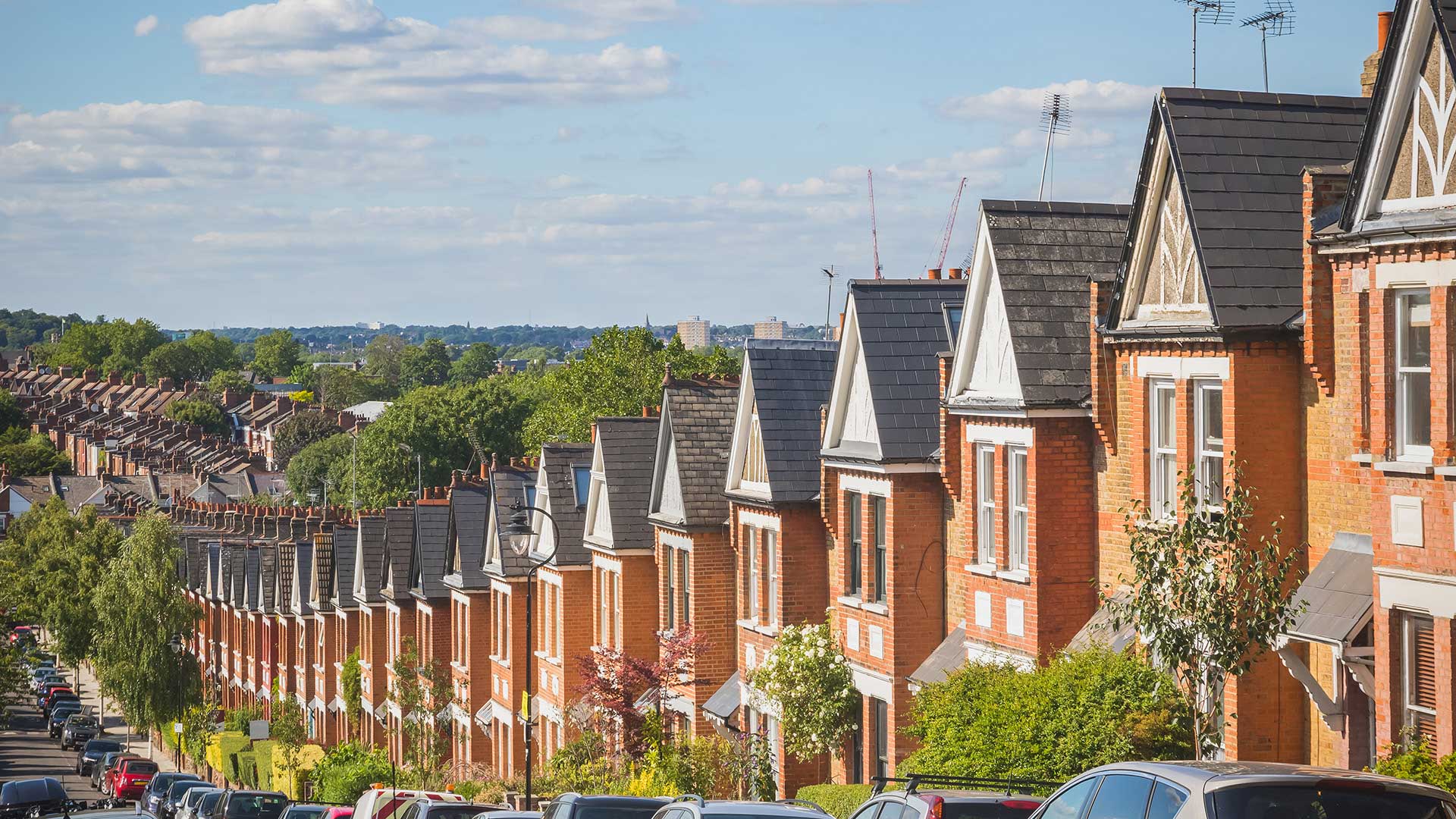Sections
The Britain Barometer is our regular polling of public opinion in Britain. We cover a range of topics including political views and voting intentions, the economy, government policies and emerging issues important to the British public.
27 January 2022, London - Kantar Public publishes its latest barometer on British public opinion and voting intentions, which reveals that Britons are now finding it harder to meet their monthly household budget than at the start of the pandemic. A large majority remain concerned about costs of living, and believe that the government should remove VAT from energy bills to help cope with increasing costs.
Key findings from Kantar Public’s research, which took place between 20 and 24 January, include:
- Since the start of the coronavirus pandemic, the number of Britons who report to finding it harder to meet their monthly household budget (compared to a year ago) has increased from 27% in March 2020) to 44% in January 2022.
- Half of Britons (49%) report that their household income has fallen behind the cost of living over the last few months (+5 vs December 2021), amongst which 41% cite the rising cost of energy bills as the main reason (+12%).
- Six in ten (59%) are of the opinion that the government should remove VAT from energy bills to help deal with increasing costs of living.
- Three quarters of Britons (73%) are very/fairly concerned that the price of fresh food will increase over the next few months (nc), and 66% are very/fairly concerned that the price of petrol/diesel will increase (-2).
- Looking at political leaders, almost half of Britons (46%) trust neither Boris Johnson nor Keir Starmer to tell the truth. A quarter (26%) trust Keir Starmer to tell the truth more than Boris Johnson, while 14% trust Boris Johnson more than Keir Starmer in this respect.
- 34% of Britons think the Conservative party would be better off with a leader who is not Boris Johnson, 30% think they would be doing about the same, and 18% think they would be worse off with a different leader.
- Over the last month, there has been a reduction in the level of concern about the Omicron Coronavirus variant. Half of Britons (51%) are currently very/fairly concerned, compared with 67% a month ago.
More detailed analysis on themes
1. Household-level economic situation
When asked about their household situation, almost half of Britons (44%) are finding it harder to meet their monthly household budget than a year ago. At the start of the coronavirus pandemic, in March 2020, only 27% said they were finding it harder than a year ago: this significant increase has been observed primarily since September 2021 (see graph 1).
Graph 1: Proportion of Britons who find it easier/harder to meet their monthly household budget compared to a year ago.

- Half of Britons (49%) report that their household income has fallen behind the cost of living over the last few months (+5).
- Among those, four in ten (41%) cite the rising cost of energy bills as being the main reason – which represents a significant increase of 12 percentage points from December 2021 – while 21% attribute it to the rising cost of food (-7).
- 42% report that their household income has kept up with the cost of living over the last few months (-3), and 9% report that their income has gone up by more than the cost of living (-2).
- Britons remain concerned about increasing prices:
- 73% of Britons are very/fairly concerned that the price of fresh food will increase over the next few months (nc); 24% are not very/not at all concerned (-1).
- 66% are very/fairly concerned that the price of petrol/diesel will increase (-2). 28% are not very/not at all concerned (+1).
- When asked what the government should do to help deal with the rising cost of living:
- 59% said they should remove VAT from energy bills.
- 38% said they should delay/cancel the planned rise in National Insurance.
- 34% said they should reduce income tax
- 33% said they should cut fuel duty
- 32% said they should reinstate the £20 per week increase to Universal Credit
- Only 4% said the government should take no action.
2. Trust in Party Leaders
A significant proportion of Britons do not trust Boris Johnson or Keir Starmer to tell the truth or make decisions in the best interests of the general public:
- Almost half of Britons (46%) trust neither Boris Johnson nor Keir Starmer to tell the truth. 26% trust Keir Starmer more than Boris Johnson to tell the truth, while just 14% trust Boris Johnson more than Keir Starmer.
- Two in five Britons (42%) trust neither Boris Johnson nor Keir Starmer to make decisions in the best interests of the general public. A quarter (25%) trust Keir Starmer more than Boris Johnson, while 19% trust Boris Johnson more than Keir Starmer.
- 34% of Britons think the Conservative party would be better off with a different leader (who is not Boris Johnson), 30% think they would be doing about the same, and 18% think they would be worse off with a different leader.
- Opinion is more divided among those who voted for the Conservatives in the 2019 General Election:
- 23% think the Conservative Party would be better off with a different leader
- 27% think they would be doing about the same
- 39% think they would be worse off with a different leader
3. Policy Priorities
When asked about the three most important priorities for the UK government if it is to improve public life in the UK, Britons cite the following:
- Reducing the cost of living (52%, -2 Vs May 2022).
- Investing more in NHS capacity (35%, nc).
- Growing the UK’s economy (28%, +4).
- Stricter border controls to reduce immigration (22%, +7).
4. Attitudes towards COVID-19 and response to the new variant
Britons are less concerned about the Omicron Coronavirus variant than they were a month ago, an increasing number think adults should be able to choose whether or not to get vaccinated, and satisfaction with the government’s handling of the pandemic has increased:
- Half of Britons (51%, -16) are very/fairly concerned about the Omicron Coronavirus variant. 46% (+17) are not very/not at all concerned.
- 46% think the government has handled the pandemic very/fairly poorly (-10), while 46% think the government has handled it very/fairly well (+9)
- 49% of Britons think the government is very good /fairly good at communicating information about Coronavirus (+10). 45% think the government is very poor/fairly poor at it (- 10).
- 40% (-9) think that vaccines should be compulsory for all adults. 50% (+9) think that adults should be allowed to choose.
- Seven in ten people (70%, +2) say they are very/somewhat satisfied with the vaccine rollout organised by the government and health authorities. 19% are not very/not at all satisfied with the vaccine rollout (-7).
5. Voting intentions
- Lab 38% (nc vs December 2021)
- Con 34% (nc)
- L Dem 11% (nc)
- Green 7% (nc)
- SNP 5% (+2)
- Reform UK (formerly Brexit Party) 2% (-1)
- UKIP 1% (-1)
- Plaid Cymru 1% (nc)
- Other 1% (-1)
A four-point Labour lead is smaller than most other recent voting intention polls. Other polls from the last two weeks have shown a larger Labour lead (ranging from +7 to +13 points). We think this disparity is due primarily to a methodological difference between our poll and other polls. In particular, we do not provide the option to answer ‘don’t know’ to the party choice question, only ‘prefer not to say’ and ‘would not vote’. Most other pollsters also have a ‘don’t know’ option and 2019 Conservative voters have been selecting this option at an unusually high rate compared to 2019 Labour voters.
It is our understanding that these other pollsters treat any responses of ‘don’t know’, ‘prefer not to say’ or ‘would not vote’ as non-voters so far as the next election is concerned. Because 2019 Conservative voters have been selecting ‘don’t know’ at a higher rate than 2019 Labour voters, proportionally fewer of them are ‘surviving’ as next-election voters. This adds materially to the Labour voting intention share.
In our view it is unlikely that such a large proportion of Conservative 2019 voters would choose not to vote in the next General Election, or that they will turn out at a lower rate than 2019 Labour voters. For context, analysis of the 2019 post-election British Election Study shows that c.90% of both 2017 Conservative voters and 2017 Labour voters went on to vote in the 2019 General Election.
In contrast, in our poll, we see no difference in such survival rates between 2019 Conservative and Labour voters. This, on its own, means a smaller Labour lead than other pollsters are showing. The ‘loyalty’ levels among those 2019 Conservative and Labour voters who have selected a ‘next election’ party is very similar to the levels found by other pollsters.
Methodological information
A total of 1,086 interviews were conducted online among adults living in Great Britain between the 20th and 24th January 2022. All interviews were conducted online using the Kantar Research Express. The Kantar online access panel was the main sample source.
The data was weighted to match population totals for age, gender, 2019 General Election voting patterns, 2016 EU referendum voting patterns, education, region, and likelihood to vote in the next General Election. Any use of this research must cite Kantar Public as the source.
This Britain Barometer was issued under our former global brand name: Kantar Public.
Our latest thinking
Subscribe to receive regular updates on our latest thinking and research across the public policy agenda
Our latest thinking
Subscribe to receive regular updates on our latest thinking and research from across the public policy agenda









